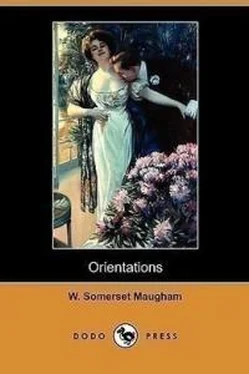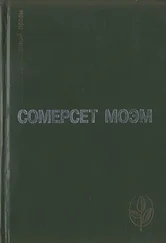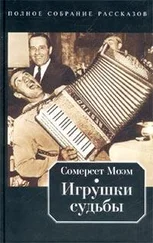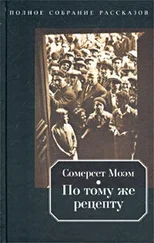Уильям Моэм - Orientations
Здесь есть возможность читать онлайн «Уильям Моэм - Orientations» весь текст электронной книги совершенно бесплатно (целиком полную версию без сокращений). В некоторых случаях можно слушать аудио, скачать через торрент в формате fb2 и присутствует краткое содержание. Год выпуска: 2014, Издательство: epubBooks Classics, Жанр: Классическая проза, на английском языке. Описание произведения, (предисловие) а так же отзывы посетителей доступны на портале библиотеки ЛибКат.
- Название:Orientations
- Автор:
- Издательство:epubBooks Classics
- Жанр:
- Год:2014
- ISBN:нет данных
- Рейтинг книги:5 / 5. Голосов: 1
-
Избранное:Добавить в избранное
- Отзывы:
-
Ваша оценка:
- 100
- 1
- 2
- 3
- 4
- 5
Orientations: краткое содержание, описание и аннотация
Предлагаем к чтению аннотацию, описание, краткое содержание или предисловие (зависит от того, что написал сам автор книги «Orientations»). Если вы не нашли необходимую информацию о книге — напишите в комментариях, мы постараемся отыскать её.
Orientations — читать онлайн бесплатно полную книгу (весь текст) целиком
Ниже представлен текст книги, разбитый по страницам. Система сохранения места последней прочитанной страницы, позволяет с удобством читать онлайн бесплатно книгу «Orientations», без необходимости каждый раз заново искать на чём Вы остановились. Поставьте закладку, и сможете в любой момент перейти на страницу, на которой закончили чтение.
Интервал:
Закладка:
'Well, it is awkward. You know what father is; if he saw her.'…
Mrs Griffith paused a moment.
'You must go up and see her, George!'
'Me!' he cried in astonishment, a little in terror.
'You must go as if you came from your father, to say we won't have anything more to do with her and she's not to write.'
VII
Next day George Griffith, on getting out of the station at Victoria, jumped on a Fulham 'bus, taking his seat with the self–assertiveness of the countryman who intends to show the Londoners that he's as good as they are. He was in some trepidation and his best clothes. He didn't know what to say to Daisy, and his hands sweated uncomfortably. When he knocked at the door he wished she might be out—but that would only be postponing the ordeal.
'Does Mrs Hogan live here?'
'Yes. Who shall I say?'
'Say a gentleman wants to see her.'
He followed quickly on the landlady's heels and passed through the door the woman opened while she was giving the message. Daisy sprang to her feet with a cry.
'George!'
She was very pale, her blue eyes dim and lifeless, with the lids heavy and red; she was in a dressing gown, her beautiful hair dishevelled, wound loosely into a knot at the back of her head. She had not half the beauty of her old self…. George, to affirm the superiority of virtue over vice, kept his hat on.
She looked at him with frightened eyes, then her lips quivered, and turning away her head she fell on a chair and burst into tears. George looked at her sternly. His indignation was greater than ever now that he saw her. His old jealousy made him exult at the change in her.
'She's got nothing much to boast about now,' he said to himself, noting how ill she looked.
'Oh, George!'…she began, sobbing; but he interrupted her.
'I've come from father,' he said, 'and we don't want to have anything more to do with you, and you're not to write.'
'Oh!' She looked at him now with her eyes suddenly quite dry. They seemed to burn her in their sockets. 'Did he send you here to tell me that?'
'Yes; and you're not to come down.'
She put her hand to her forehead, looking vacantly before her.
'But what am I to do? I haven't got any money; I've pawned everything.'
George looked at her silently; but he was horribly curious.
'Why did he leave you?' he said.
She made no answer; she looked before her as if she were going out of her mind.
'Has he left you any money?' asked George.
Then she started up, her cheeks flaming red.
'I wouldn't touch a halfpenny of his. I'd rather starve!' she screamed.
George shrugged his shoulders.
'Well, you understand?' he said.
'Oh, how can you! It's all you and mother. You've always hated me. But I'll pay you out, by God! I'll pay you out. I know what you are, all of you—you and mother, and all the Blackstable people. You're a set of damned hypocrites.'
'Look here, Daisy! I'm not going to stand here and hear you talk like that of me and mother,' he replied with dignity; 'and as for the Blackstable people, you're not fit to—to associate with them. And I can see where you learnt your language.'
Daisy burst into hysterical laughter. George became more angry—virtuously indignant.
'Oh, you can laugh as much as you like! I know your repentance is a lot of damned humbug. You've always been a conceited little beast. And you've been stuck up and cocky because you thought yourself nice–looking, and because you were educated in Tercanbury. And no one was good enough for you in Blackstable. And I'm jolly glad that all this has happened to you; it serves you jolly well right. And if you dare to show yourself at Blackstable, we'll send for the police.'
Daisy stepped up to him.
'I'm a damned bad lot,' she said, 'but I swear I'm not half as bad as you are…. You know what you're driving me to.'
'You don't think I care what you do,' he answered, as he flung himself out of the door. He slammed it behind him, and he also slammed the front door to show that he was a man of high principles. And even George Washington when he said, 'I cannot tell a lie; I did it with my little hatchet,' did not feel so righteous as George Griffith at that moment.
Daisy went to the window to see him go, and then, throwing up her arms, she fell on her knees, weeping, weeping, and she cried,—
'My God, have pity on me!'
VIII
'I wouldn't go through it again for a hundred pounds,' said George, when he recounted his experience to his mother. 'And she wasn't a bit humble, as you'd expect.'
'Oh! that's Daisy all over. Whatever happens to her, she'll be as bold as brass.'
'And she didn't choose her language,' he said, with mingled grief and horror.
They heard nothing more of Daisy for over a year, when George went up to London for the choir treat. He did not come back till three o'clock in the morning, but he went at once to his mother's room.
He woke her very carefully, so as not to disturb his father. She started up, about to speak, but he prevented her with his hand.
'Come outside; I've got something to tell you.'
Mrs Griffith was about to tell him rather crossly to wait till the morrow, but he interrupted her,—
'I've seen Daisy.'
She quickly got out of bed, and they went together into the parlour.
'I couldn't keep it till the morning,' he said…. 'What d'you think she's doing now? Well, after we came out of the Empire, I went down Piccadilly, and—well, I saw Daisy standing there…. It did give me a turn, I can tell you; I thought some of the chaps would see her. I simply went cold all over. But they were on ahead and hadn't noticed her.'
'Thank God for that!' said Mrs Griffith, piously.
'Well, what d'you think I did? I went straight up to her and looked her full in the face. But d'you think she moved a muscle? She simply looked at me as if she'd never set eyes on me before. Well, I was taken aback, I can tell you. I thought she'd faint. Not a bit of it.'
'No, I know Daisy,' said Mrs Griffith; 'you think she's this and that, because she looks at you with those blue eyes of hers, as if she couldn't say bo to a goose, but she's got the very devil inside her…. Well, I shall tell her father that, just so as to let him see what she has come to.'…
The existence of the Griffith household went on calmly. Husband and wife and son led their life in the dull little fishing town, the seasons passed insensibly into one another, one year slid gradually into the next; and the five years that went by seemed like one long, long day. Mrs Griffith did not alter an atom; she performed her housework, went to church regularly, and behaved like a Christian woman in that state of life in which a merciful Providence had been pleased to put her. George got married, and on Sunday afternoons could be seen wheeling an infant in a perambulator along the street. He was a good husband and an excellent father. He never drank too much, he worked well, he was careful of his earnings, and he also went to church regularly; his ambition was to become churchwarden after his father. And even in Mr Griffith there was not so very much change. He was more bowed, his hair and beard were greyer. His face was set in an expression of passive misery, and he was extremely silent. But as Mrs Griffith said,—
'Of course, he's getting old. One can't expect to remain young for ever'—she was a woman who frequently said profound things—'and I've known all along he wasn't the sort of man to make old bones. He's never had the go in him that I have. Why, I'd make two of him.'
The Griffiths were not so well–to–do as before. As Blackstable became a more important health resort, a regular undertaker opened a shop there; and his window, with two little model coffins and an arrangement of black Prince of Wales's feathers surrounded by a white wreath, took the fancy of the natives, so that Mr Griffith almost completely lost the most remunerative part of his business. Other carpenters sprang into existence and took away much of the trade.
Читать дальшеИнтервал:
Закладка:
Похожие книги на «Orientations»
Представляем Вашему вниманию похожие книги на «Orientations» списком для выбора. Мы отобрали схожую по названию и смыслу литературу в надежде предоставить читателям больше вариантов отыскать новые, интересные, ещё непрочитанные произведения.
Обсуждение, отзывы о книге «Orientations» и просто собственные мнения читателей. Оставьте ваши комментарии, напишите, что Вы думаете о произведении, его смысле или главных героях. Укажите что конкретно понравилось, а что нет, и почему Вы так считаете.










